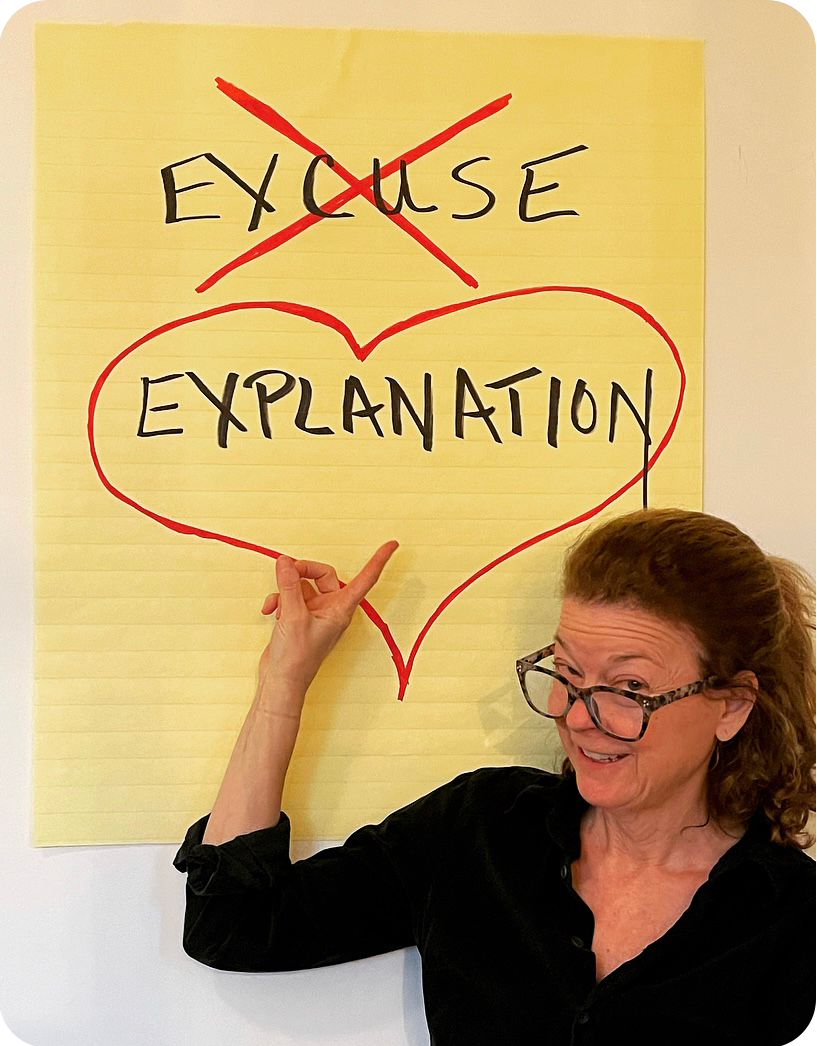
As I mentioned in my last post, answering questions is one of my great joys which is why I was so happy when a client asked,
“How can I avoid engaging in backstory/excuses during confrontation?”
Before we get into how to do this, however, let’s look at why it’s important:
When we are confronted, few of us think super clearly. Instead, our minds rush about, fumbling to make sense of what is happening.
This is when backstory occurs.
We are trying to articulate for the other person what happened as we lived it, hoping that will help resolve the conflict.
The tricky bit is the person is in the midst of what happened as they lived it.
This makes our backstory land as a morass of excuses.
Given that, I recommend taking a deep breath and articulating,
“This is not an excuse. It is an explanation.”
Why does stating this distinction work?
Because it offers you a way to frame what happened without making it sound like you are trying to shirk responsibility while simultaneously reassuring the other person of the same thing.
